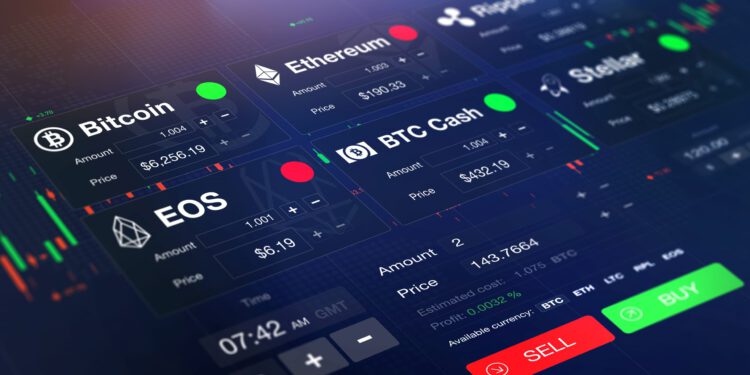This article first appeared on the Fin Law Blog.
Anyone who trades crypto assets professionally in Germany on their own account needs a BaFin permit to operate proprietary trading in many constellations. Proprietary trading can exist in four different constellations according to German supervisory law. So-called market making occurs, for example, when a company continuously offers the purchase and sale of crypto assets on regulated financial markets using its own capital at self-made prices for its own account. If a service provider opens up or facilitates access to trading with crypto assets for its customers through a trading offer in relation to crypto assets, this service may also be subject to authorization as proprietary trading.
Less common in crypto trading is the use of high-frequency algorithmic trading techniques on organized trading venues, which can also lead to the fact that a corresponding company needs approval as a proprietary trader. Finally, for the area of so-called over-the-counter trading (OTC trading), there is the proprietary trading variant of systematic internalization. It can be fulfilled if a provider often organizes and systematically conducts trade with customers for its own account to a significant extent outside an organized market or multilateral trading system. Systematic internalization also refers to financial instruments and thus, in principle, also to crypto assets. Nevertheless, it is questionable whether the systematic internalization can also be fulfilled when trading crypto assets.
Only heavyweights of OTC trading should be regulated
OTC trading is characterized precisely by the fact that it takes place outside of strictly regulated and supervised exchanges. Since there are a large number of participants here, some of whom trade financial instruments in rather small quantities, not all actors of OTC trading are worthy of supervision. The law therefore prescribes certain thresholds that must be exceeded by providers of OTC financial instruments in order to be considered a systematic internaliser. For example, whether a provider’s trading has a significant volume within the meaning of the proprietary trading status is determined either by the share of OTC trading in the provider’s total trading volume in a relevant financial instrument or by the ratio of its OTC trading to the total trading volume in a particular financial instrument in the European Union.
This hurdle can also be overcome with OTC trading with crypto values from providers. However, the law also stipulates that systematic internalisation can only be fulfilled if the upper limits for frequent systemic trading and significant trading volume set out in Articles 12 to 17 of EU Regulation No. 2017/565 on organisational requirements for investment firms have been exceeded. However, the EU regulation does not know the concept of crypto value, which is regulated only at the national level, and sets limits only for the categories of financial instruments recognized under the European MiFID regulation. On the other hand, there are no regulations on crypto values in the regulation. The prerequisite established by German supervisory law that the upper limits according to EU Regulation No. 2017/565 must be exceeded cannot therefore be met in the case of trading in crypto assets.
Can there be a systematic internalization with crypto values that requires a permit?
The absence of caps on OTC trading in crypto assets in EU Regulation No. 2017/565 could be cited as an argument that the fact of systematic internalization in the sense of German supervisory law cannot be met in this area. However, it could also be argued that the requirement of exceeding the upper limits of the EU regulation in the case of crypto assets must be eliminated, because there are no relevant regulations. In the latter case, however, the scope of the terms of frequent systemic trading and the significant scope of trading in OTC trading of crypto assets would not be delimitable at all.
In view of this legal uncertainty, an interpretation decision by BaFin would be necessary and helpful. It is true that most of the providers for whom the question becomes relevant will operate their own trading as a service for others anyway and will therefore be subject to permission. Nevertheless, a regulatory classification as a systematic internaliser would be associated with further regulatory obligations for the company concerned, which is why a generally valid clarification of the legal question would be welcome. In order to avoid legal uncertainties, those affected may voluntarily submit to the rules for systematic internalizers and submit a corresponding application for admission to BaFin.









